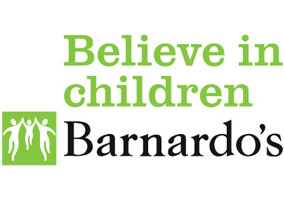Several charities have criticised a report from the Commission on Race and Ethnic Disparities, which concluded that the UK does not have a systemic problem with racism.
The Commission is chaired by Tony Sewell, and the report has been dubbed “deeply troubling” and “disturbing”.
Runnymede, a charitable race equality think tank, says that the people involved in this commission “had no interest in genuinely discussing racism,” adding “the least the commission could have done is acknowledge the very real suffering of Black and minority ethnic communities here in the UK”.
It continues: “The very suggestion that government evidence confirms that institutional racism does not exist is frankly disturbing.”
It adds: “The commission continuously uses rhetoric which pits the white working class against ethnic minorities, suggesting that for the white working-class the ‘door may be only half open’.”
Runnymede also states that this commission lost the confidence of ethnic minority communities when Tony Sewell was appointed to lead it, “a figure who had previously asserted that institutional racism does not exist, and whose commitment to the wider equalities agenda was questionable”.
“Frankly, by denying the evidence of institutional racism and tinkering with issues like unconscious bias training and the use of the term ‘BAME’, the government have insulted not only every ethnic minority in this country - the very people who continue to experience racism on a daily basis - but also the vast majority of the UK population that recognise racism is a problem and expect their government to contribute to eradicating it. All on Derek Chauvin’s trial day, no less,” the statement ends.
Other charity leaders reiterated Runnymede’s statement and rejected the conclusions of the report.
Deborah Gold, chief executive of National AIDS Trust said she was “deeply troubled” by the reports rejection of the existence and impacts of institutional and structural racism in the UK.
She said: "The commission’s conclusions ignore evidence, real experiences, and defy logic in the context of those things that the commission does accept and recommend.”
The charity submitted evidence to this review in 2020 and said it was concerned the commission was asking the wrong questions.
“We concluded that rather than being a neutral collection of evidence, the review was designed to get answers negating the impact of systemic racism in the UK. This was further underscored by its overall insistence on referring to disparity rather than inequality. Given this, the conclusions of the report should perhaps not be surprising,” Gold said.
Other charities also took the opportunity to explain how those that they work with are impacted by structural racism in the UK.
For example, the homelessness charity, Shelter, published a blog explaining how people of colour are disproportionately impacted by the housing crisis.
It reads: “It is a sad truth that people of colour are disproportionately affected by the housing emergency. Every eight minutes, a person who is Black, Asian or from another minority ethnic background becomes homeless or is threatened with homelessness. People of colour are more likely to be homeless, live in deprived neighbourhoods, and be living in poor-quality homes.”
Thomas Lawson, chief executive at Turn2us, said: “People do not have an investment in proving racism exists, quite the opposite, people are invested in eradicating racism. You simply can’t do that unless you face the reality of this ongoing problem.
“There are deep-rooted economic inequalities in our society. At Turn2us we have seen this from our own data. You are more likely to experience financial hardship if you are Black. You are more likely to have lost your job in the coronavirus pandemic if you are Bangladeshi. You are more likely to experience deep poverty if you are Pakistani. This is not a coincidence; this is clearly a long-term endemic structural and institutional problem.
“Turn2us exists to support people who struggle to get by financially: we cannot ignore the clear link between race and poverty. We urge the government to not dismiss the reality of institutional racism and instead look at the evidence and produce a strategy to create meaningful change. For a society that believes in compassion and fairness, we have the moral obligation to fight the inequalities that have plagued us for too long.”
Mind, the mental health charity, also tweeted: “We know that Black people are four times more likely to be sectioned or detained under the Mental Health Act than White people. They are also more likely to be given psychoactive medication instead of a talking therapy.
“As recognised in the report all forms of racism can be damaging to the mental health of racialised communities, also known as racial trauma. Racial trauma can lead to depression, hypervigilance, chronic stress, fatigue, bodily inflammation and symptoms similar to PTSD.We believe anti-racism and racial equality cannot be achieved without recognising and dismantling all forms of racism, in particular institutional racism. We will keep fighting to address discrimination in the mental health system.”
We believe the Commission on Race and Ethnic Disparities report has fallen short in the conversation about race equality. Here’s what we know about institutional racism in the UK’s mental health services. (1/4) https://t.co/c76e1CjM1d
— Mind (@MindCharity) March 31, 2021
No 10’s special adviser for civil society resigns
This comes as Samuel Kasumu, No 10’s special adviser for civil society and communities, resigned.
He first attempted to resign earlier this year. At that point a leaked letter to the prime minister shows Kasumu raised concerns about the conduct of Kemi Badenoch, the equalities minister, after she publicly criticised a black journalist on social media.
But a spokesperson for 10 Downing Street denied a link between the controversial report and Kasumu’s resignation.
“Mr Kasumu has played an incredibly valuable role during his time at No 10,” said a statement.
“As he previously set out, he will be leaving government in May – this has been his plan for several months and has not changed.
“Any suggestion that this decision has been made this week or that this is linked to the CRED report is completely inaccurate.”
Related articles
Mike Adamson: How the British Red Cross is facing up to racism
Mike Adamson, chief executive at the British Red Cross, explains why the charity has launched an anti-racism programme and what it will be doing












